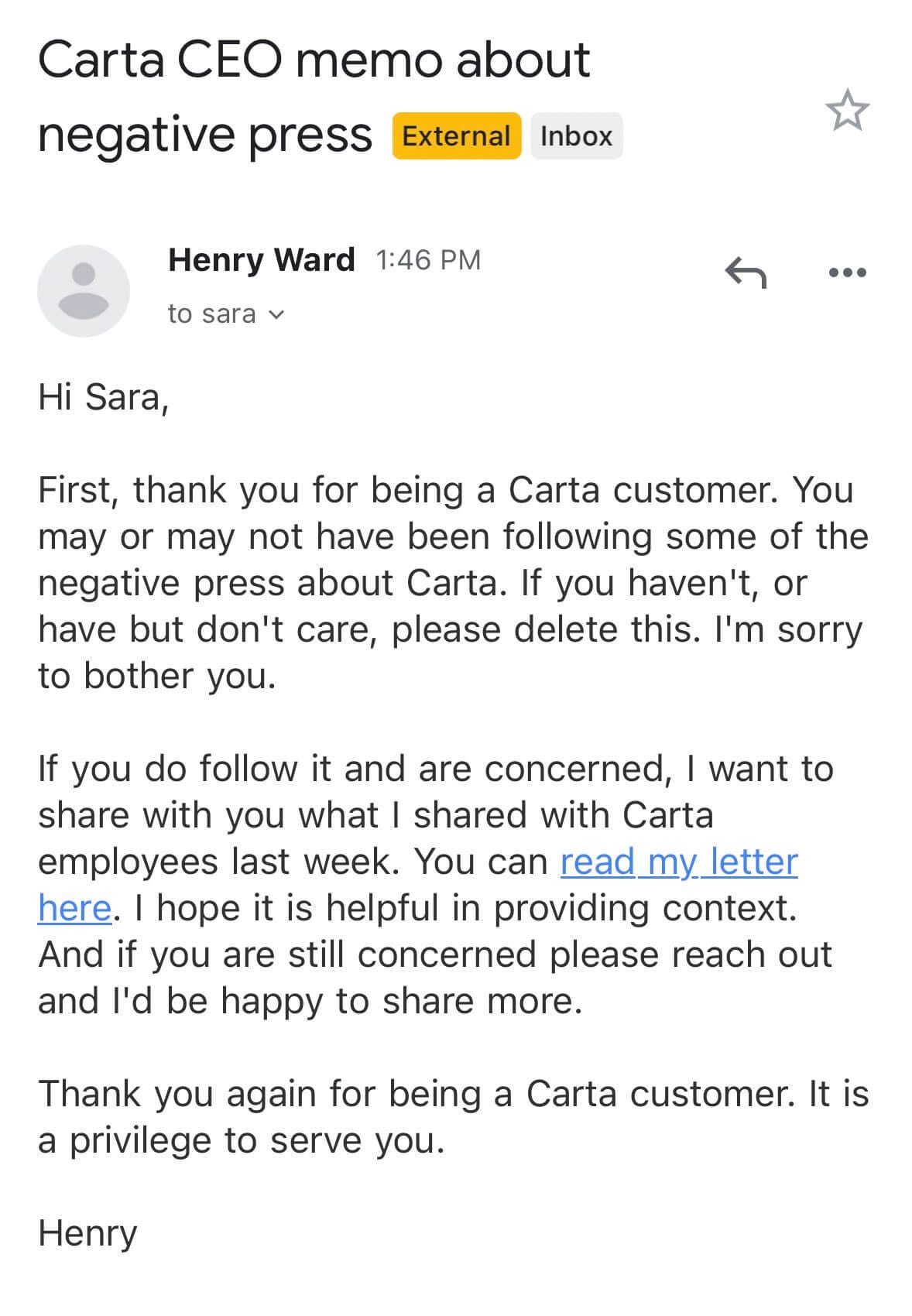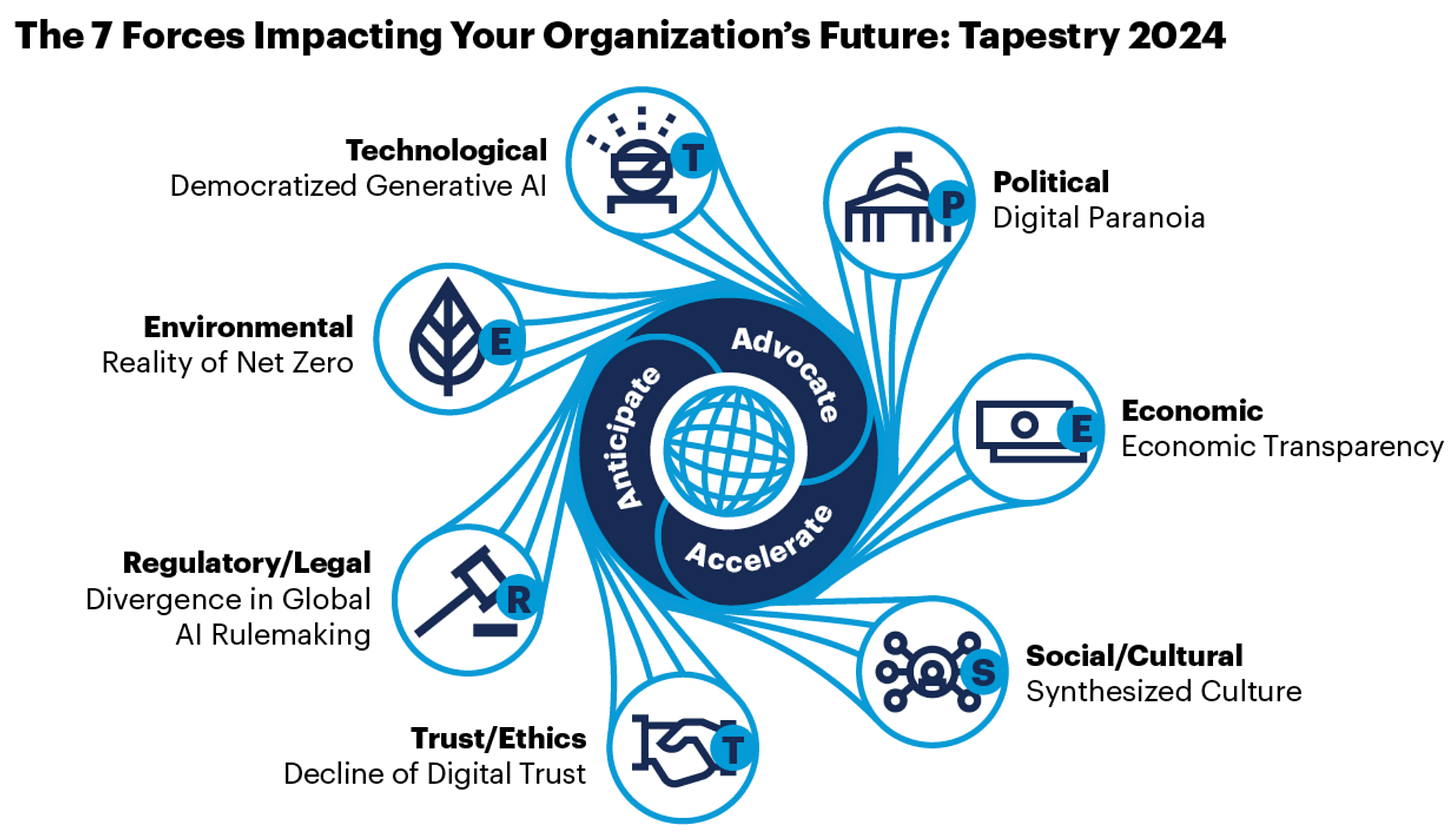A dive into the tech CEO non-apology apology genre
Also, how to sell homes, mobile or otherwise
Hello Gobbledeers,
How’s it going? I’ll start this week with a friendly reminder that in addition to writing Gobbledy, I work with companies on their messaging. If your messaging is incomprehensible (it’s not just you!), I have a method for comprehensibling (tm) it. I’m happy to chat - here’s my Calendly link.
Alright enough of that…
Mobile Homes on and off Staten Island
Last week I mentioned that I would share a couple of ads that show what’s possible when you trust your marketing department. And then I realized that these two ads are for companies that don’t have marketing departments. But then I thought that the owners of the business still trusted a creative team to represent their businesses in a way that captured the essence of their brand, without compromise. We don’t see that often enough. A lack of fear is the key to creativity.
Ad #1:
The first is a 14-year-old commercial for an Alabama company that sells used mobile homes. Take a look:
First off, how had I never seen that before? How am I just seeing that now? Why did nobody share that with me before? Everyone I know has disappointed me.
And because I know that about 97% of you don’t click through when I link to a video, here’s the transcript:
Hi I'm Robert Lee. I own Coleman Liquidation. I sell mobile homes. I'm not gonna waste your time - I'm gonna tell it just like it is. These are mobile homes, not mansions. They come in two pieces.
If that's what you're looking for, that's what I got.
They're used. Some of them have stains. We cover that up.
(Points to his employees): She decorates them. She sells them. These guys help me move.
A bouncer in Birmingham hit me in the face with a crescent wrench five times, and my wife's boyfriend broke my jaw with a fence post.
So if you don't buy a trailer from me, it ain't gonna hurt my feelings.
So come on down to Coleman liquidation and get yourself a home. Or don't I don't care.
I’m not really sure I have any commentary to add to that, nor any ways for you to take something away from that and apply it to your company. I mean, is the founder of your SaaS business going to get up there and admit to being beaten with a fence post during a fight with his wife’s boyfriend? No. No he is not. What are the odds that your 27 year old founder was ever even in a fight (at Stanford) with someone who has ever - not even just in that moment - wielded a fence post as a weapon? (Probably not zero, but probably not not zero.)
Also - if I’m ever beaten with a crescent wrench, I hope I also have the wherewithal to count the number of times I’ve been hit. It’s that kind of attention to detail that makes me want to buy a used mobile home from that guy.
Ad #2:
Hm, how do I describe this?
There’s a realtor on Staten Island who goes by the name Tony B and works for Island Wide Realty in Staten Island. Maybe he owns Island Wide Realty. I don’t know. It’s not important.
What’s important is that he’s been posting videos on Instagram of the properties he sells on Staten Island, and he is, bar none, the most Staten Island guy selling real estate on Staten Island. Here’s a representative video. (Enjoy the hour you’re about to waste watching his videos.)
Somehow some people who work at the ad agency Ogilvy saw the videos, loved the videos (as everyone who watches them does), and then offered to create an ad for him. Here’s the result:
The lesson from this? Nothing beats authenticity, even if authenticity is really strange.
(Want to learn a little more about Tony B, real estate agent? I didn’t think so. But here’s a link to a story about him anyway.)
If I Have Just One Fault, It’s That I’m Too Amazing
It is a truth universally acknowledged, that a CEO in possession of a company getting bad press, must be in want of a Medium post.
If you run a company that has been the subject of a handful of articles accusing the company of bad things, you have a couple of choices for how you deal with this unfortunate situation. Here are those choices:
You take the “nothing to see here, please disperse” approach. You respond that you do not litigate things in the press, and either the legal system or our internal policies will be followed and please go back to work. Pros: Everyone goes back to work (until the next story). Cons: There’s often something to see here.
“I am cooperating with the investigation and I look forward to the exoneration.” Pros: Since you’re taking this approach due to your guilt, you’ve probably realized you’re screwed. Cons: People stop showing up for meetings with you.
“The media is biased and hates tech companies!” Pros: It’s not your fault when the entire world is stacked against you (you = guy who has raised $2 billion at an insane valuation). Cons: This approach definitely means you’re guilty.
As we can see, there are pros and cons to each approach.
I wasn’t exactly correct when I said there were 3 approaches. There are definitely more approaches.
Maybe you are the CEO of Carta (a tool that manages employee stock options, mostly for companies in the startup community), and you have recently faced accusations published in a number of articles about your company that suggest perhaps there are some issues around how employees are treated re: harassment.
In that case, you take one of the other approaches.
One of those other approaches that seems a little bonkers is that maybe you write a post on Medium where you include the following things:
At the top you include a helpful “tl;dr” with 4 things on it that summarizes your response, and the 4th - and final, I might add! - thing is “Employees matter most,” which you think would be the 1st thing listed, as they matter the most, rather than the 4th thing listed, which - when it’s a list of 4 things - is more typically reserved for the thing that matters least.
Because you’re a selfless, caring individual you note that you wrote this not to point fingers (specifically, fingers in the opposite direction of where you are currently located), but because “I know other CEOs have to deal with this so I wanted to share what I shared with employees in case it’s helpful for other CEOs thinking through similar problems.”
You emphasize your selflessness (among other qualities) by noting, “As many of you know I’m quite principled, sometimes to a fault.” To a fault! To such a fault that people keep suing us! Because of my principles!
You note that these terrible, untrue stories about your company keep coming out because, something something the book about Theranos, something something. “When John Carreyou won the Pulitzer Prize for his coverage of Theranos it changed everything for tech reporters1. Their career path changed from reporting interesting technology trends to exposing corruption in tech companies.” The good old days were when reporters would print anything you told them. Then that one book (just that one book. Only that one.) changed everything, and now those assholes want to destroy great companies, just like Theranos!
You are a great boss, so you point out that one of the people on your team being accused of many of these terrible things is a great guy, and everyone knows it, and everyone knows that people would never work for terrible bosses, so because people worked for him and didn’t leave, these accusations couldn’t be true. Just like how nobody ever worked for Harvey Weinstein. “Anybody that2 knows Jeff knows the accusations against him are ridiculous. He is a good and moral person. If that weren’t true people would leave him in droves. Instead he has one of the highest employee retention rates of all executives at Carta.” (He can’t be terrible, his KPIs were excellent!)
Obviously, the CEO of Carta took that approach or I wouldn’t be writing about it here. But I’m not even sure that was the best part.
The best part is that he sent a note to Carta’s customers that said this:
Basically: you probably didn’t know about these random articles that said some pretty bad stuff about us. But let me make sure you saw them!
“You may or may not have been following some of the negative press about Carta. If you haven’t, please delete this…”
If your first reaction to that isn’t, “oh HELL YES I have to Google that shit right now!” then we can’t be friends.
Anyway, I’m sorry that every tech journalist is now trying to write a Theranos book to move ahead in their career and is doing that by trying to destroy a company nobody has heard of.
One Last Gartner Graphic
My source for these graphics will no longer have access, which makes me very sad. So this may be the last Gartner graphic we have for a while:
The tornado of digital paranoia.
As always, thanks for reading all the way to the end. I know lots of people don’t have an attention span anymore (but you do!)
This doesn’t matter at all, but John Carreyou is not a “tech reporter,” he’s a reporter who writes, among other things, about corruption.
“Who.” Not “that.” Use Grammarly, man! (Also, I know that people hate people who correct people’s grammar. It’s OK, I can take it. Sometimes I’m principled in my grammar, to a fault!)




